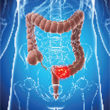The Concerning Link Between ADT, Testosterone Levels, and Cardiac Problems
Research exploring the cause for increased risks of cardiovascular
problems in prostate cancer patients on ADT hypothesizes the effect could be related to a link between testosterone levels and heart rhythm issues.

There are always many ways to look at things. Consider all angles of your health and discuss your concerns with your doctor.
Androgen-deprivation therapy (ADT) suppresses levels of androgens, including testosterone, because these hormones can fuel the spread of cancer. Thus, lowering the amounts of these hormones can control the spread of prostate cancer.
However, there is an association between ADT in prostate cancer patients and an increased risk of mortality from cardiovascular events. Most of the risk is seen in patients who are on long-term ADT, but sometimes patients are affected early in their course of ADT treatment.
Some studies have found a significant increase in risk for cardiovascular problems in ADT patients. For example, a 2017 study found that ADT was associated with an 81% increased risk of heart failure. (See ”New Research on ADT Risks and Prostate Cancer” in the Winter 2017 QUEST for more details).
Testosterone and Heart Rhythms
To further illuminate this correlation, a study noted that QTc intervals, which is a measure of heart rhythm intervals, are prolonged in patients who have lower levels of testosterone. Very prolonged QTc intervals are linked with the risk of tachy-arrhythmias and sudden death. Tachy-arrythmias are problems with the heartbeat’s rhythm during which the heart beats too fast.
The study examined changes in QTc intervals in 71 prostate cancer patients, 33 of whom were on ADT. The patients in the ADT group had longer QTc. The authors concluded that the lower levels of testosterone, which could lead to the problems with the heart rhythms, could explain the increased risk of sudden cardiac death in patients on ADT.
Prospective studies such as these look for correlations, not direct cause and-effect relationships. However, the authors of the 2017 study wrote that some patients on ADT may benefit from cardiac monitoring and modifying their lifestyle.
Androgen-deprivation therapy (ADT) is also called hormonal therapy. It can be used to treat men who have prostate cancer that has spread too far to be cured by surgery or radiation, or if the cancer comes back after surgery.
Br J Cancer. 2017 Oct 10;117(8):1233-1240. doi:10.1038/bjc.2017.280. Epub 2017 Aug 24.
J Endocr Soc. 2018 Apr 20;2(5):485-496. doi: 10.1210/js.2018-00039. eCollection 2018 May 1.




















